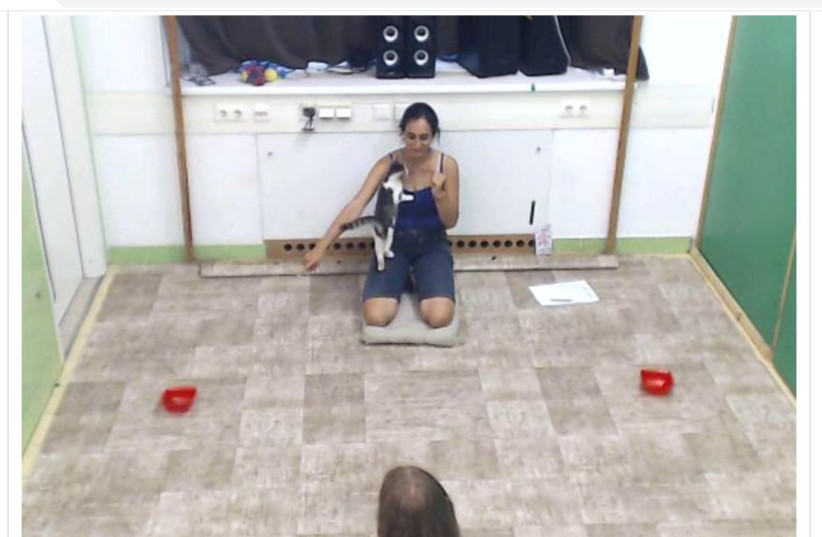Pet lovers are familiar with the age-old debate: Are dogs or cats smarter?
The degree to which our two most popular pets are similar to each other has long been a source of scientific debate.
Many comparative studies have already been conducted on these species, with varying degrees of success. For example, it is unclear whether they can recognize human communicational signals, such as pointing with a finger, to the same extent.
Researchers from the Comparative Ethology Research Group and the ethology department at Hungary’s Eötvös Loránd University compared how well companion dogs and cats can choose based on human pointing gestures in their recent study. Importantly, the pets were tested under the same conditions, ensuring the comparability of the results.
The intellectual capabilities of dogs
The dog, they wrote, is a “unique species to study interspecific communication and a promising evolutionary model for preverbal human communication. Recently cats were reported to show some similar skills to dogs. The ancestor of dogs lived in close family groups and had complex social behavior. Due to differences in their domestication from wild wolves, social and ecological background, and developmental processes, we expected better performance from dogs compared to cats.”

Only in the last few hundred years did felines become companion animals living with humans. The ancestor of the cat was a strongly territorial, solitary animal with minimal contact between individuals, except during the reproductive period. Territoriality plays an important role in the case of both species, but while cats’ home range, in which they roam comfortably, is fixed and located around a food resource, they wrote.
The researchers published their findings in the prestigious journal Scientific Advances under the title “Dogs outperform cats both in their testability and relying on human pointing gestures: a comparative study.”
“We tested cats and dogs first in the lab, which was quite the challenge for cats,” said first author and research fellow Attila Salamon, “A total of 62 indoor family cats were brought to the department by their owners, but we could carry out the pointing test with only 34 of them. The rest were either too shy or unmotivated to participate even though their favorite treats were offered. On the other hand, no dogs had to be excluded.”
Testing animal intelligence
“The task appeared to be very simple. We placed two containers on the ground, one of which contained a food reward. The experimenter always pointed at the baited container, then the subject could choose. Overall, dogs proved to be more skilled: they found the reward significantly more frequently than cats,” said co-author Melitta Csepregi. “In addition, cats gradually became less willing to choose, while dogs were eager to work during the whole duration of the test.”
Since cats seemed to be at a disadvantage in the unfamiliar environment, the researchers later tested a subgroup of the cats whom they visited at home. While cats’ willingness to choose a container did not decline at home, their overall success was still lower compared to dogs.
“There may be several sources of these differences. Cats may have been less attentive, less motivated by food rewards, or frustrated by the unfamiliar environment or unusual handling during the test,” said Márta Gácsi, the lead researcher. “Unlike the cat, the dog is a social species and was selected for interaction and cooperation with humans during domestication of wolves thousands of years ago. Differences in how we keep them may also have contributed to the test results. All things considered, it's no surprise that it’s less relevant for cats to rely on human communication cues,” she concluded.
